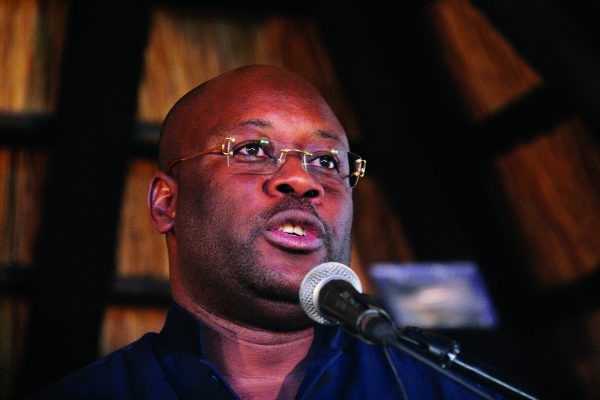
EXPERTS have questioned the mining deal signed between Zimbabwe and Belarus on alluvial gold mining, saying the eastern European country has no expertise in the extraction of the precious mineral.
BY OBEY MANAYITI
Mines minister Winston Chitando and the Chief of Presidential Affairs of Belarus, General Colonel Victor Sheiman, in March this year signed a joint mining deal for the extraction of alluvial gold.
The deal will also see a Belarus mining company de-silting Zimbabwean rivers and recovering minerals from the rivers.
But experts told The Standard that the deal was more of a political arrangement than business.
“That deal has a lot of loopholes. Did our government do the correct research? I do not think so because there are no mining companies in Belarus that are capable of alluvial gold mining and de-silting of rivers,” an expert, who preferred anonymity, said.
“We also raise questions as to why the Government of Zimbabwe failed to invite other countries that have the expertise like Russia, Australia and Canada. Why Belarus only?”
Another expert based in Belarus said: “There is no proof in terms of the alluvial gold mining and the de-silting of rivers from the Belarus companies. I do not know of any company that does alluvial gold mining in Belarus. There is no evidence at all. This was more of a political agreement and not serious mining business.”
- Chamisa under fire over US$120K donation
- Mavhunga puts DeMbare into Chibuku quarterfinals
- Pension funds bet on Cabora Bassa oilfields
- Councils defy govt fire tender directive
Keep Reading
Farai Maguwu, director of the Centre for Natural Resource Governance (CNRG), said indeed Belarus had no known history of riverbed mining.
“My biggest concern is that the Minister of Mines and the President are making big and disastrous deals that will destroy our environment and see us losing billions worth of natural capital to foreigners. Not a single of those deals have been discussed in Parliament. Our country is being mortgaged in broad daylight,” Maguwu said.
James Mupfumi of the Centre for Research and Development said government contracts evaded parliamentary oversight because of “kleptocracy.”
“The best opportunity for citizens to control the governance and their resources is to force government to implement a democratic devolution process that will give locals power over their resources,” he said.
The experts are citing a suspected secretive move by the two countries to indirectly grab mines as has been the case at Chiadzwa, where Chinese companies allegedly looted diamonds.
An insider from the Zimbabwe Mining Development Corporation said there had been lack of clarity around the deal.
“There is a high possibility the miners from Belarus are looking at consolidating their footprint in the gold mining sector through aggressively grabbing these mines through these questionable deals,” the insider said.
“I have the opinion that this deal is looking at indirectly siphoning our gold on the pretext of a joint venture. Everything is not clear here.”
Vice-President Constantino Chiwenga, however, described the deal as fruitful and for the benefit of the two countries.
Head of the Belarus President property management directorate, Viktor Sheiman, said in an interview on Belarus 1 TV Channel: “We decided to set up a joint venture in the mining sector. We will work on a wide range of minerals. We were also given the green light to work with oil, geological exploration and oil production, and also exploration and production of gas, geological exploration of minerals, including gold, and platinum and rare earth metals.” Chitando had not yet responded to questions sent to him over two weeks ago.
Mining experts have encouraged the government to seek strategic partners or recognised investors to resuscitate its mining operations.










